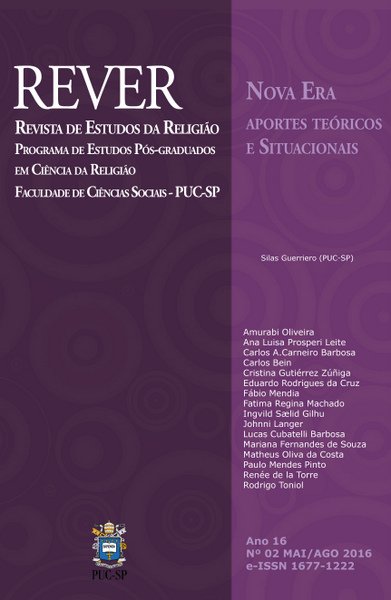The constitutive components of the New Age: The formation of a new ethos
Keywords:
Keywords, New Age, New Age Ethos, Secular Esotericism, New Spiritualities, CountercultureAbstract
The New Age movement, which began in the 1960s, caused a profound impact on contemporary culture and spirituality, affecting both the formation of values and concepts and the everyday practices. This worldview has spread over society, creating a form of spirituality that pervades even the traditional religious institutions. This paper seeks to raise the constituent components of the New Age movement, both the set of beliefs and values, as the field of practices. The survey was conducted based on studies by Brazilian and foreign authors, trying to systematize a framework of the constituent components of the New Age ethos. These components were divided into three categories: meta-empirical framework of meanings; systems of practice; and forms of organization and membership.Metrics
Metrics Loading ...
Downloads
Published
2016-08-31
How to Cite
Guerriero, S., Mendia, F., Costa, M. O. da, Bein, C., & Leite, A. L. P. (2016). The constitutive components of the New Age: The formation of a new ethos. REVER: Journal for the Study of Religion, 16(2), 9–30. Retrieved from https://revistas.pucsp.br/index.php/rever/article/view/29280
Issue
Section
Seção Temática
License
Authors who publish in this journal agree with the following terms:- Authors retain copyright, but grant the journal the right of first publication, with the work simultaneously licensed under the Creative Commons BY-NC License.
- Authors are authorized to assume additional contracts separately, for non-exclusive distribution of the work published in this journal (e.g., publishing in an institutional repository or as a book chapter), as long as with acknowledgment of authorship and first publication in this journal.


